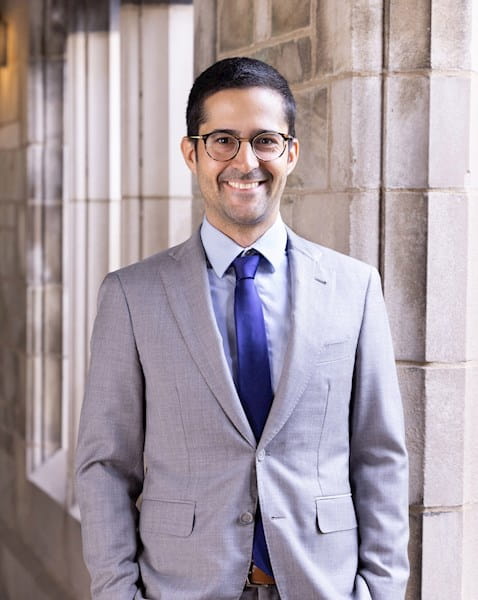


Biography
We constantly encounter other individuals and groups, face-to-face or remotely. Who is irrelevant, pleasant, or aversive, and for what reasons? Finding truthful and useful answers to these questions is important and requires that we observe, infer, remember, and reflect on the attributes, similarities and differences between individuals, groups, and ourselves. This is known as social cognition. Accordingly, Alex Koch’s social cognition research seeks to understand how we form impression of, and evaluate, others to disengage or initiate purposeful behaviors toward them. Alex focuses on two topics: biased evaluation and open-ended impression formation.
First, Alex examines whether others’ vices influence our evaluations and behaviors toward them more profoundly than their virtues. One prominent account is that the aversive implications of people’s negative attributes can be more intense than the pleasant implications of their positive attributes. Alex’s scientific work complements this ‘bad is stronger than good’ account with a ‘good is more alike than bad’ explanation that predicts negativity bias when we differentiate, but positivity bias when we look for similarities.
Second, Alex examines the content of the attributes on which we compare societal groups. A prominent model posits that people care to memorize and describe the degree of competence and warmth of groups and their members. Alex’s alternative model argues that people also care to memorize and describe their ideological beliefs. Moreover, people’s impressions of the groups’ competence, warmth, and beliefs hang together and predict their behavior toward the members of the groups.
Alex’s research aims to explain impressions, evaluations, and behaviors not only in terms of people’s psychology (i.e., motivation, affect, and cognition), but also through the ecology (i.e., the distribution of information). The insightfulness of an explanation increases with the distance between what explains and what is explained. The ecology is more distant to people’s impressions etc. than people’s psychology, and thus the ecology is an insightful explanation of their impressions etc. The participants in Alex’s studies encountered and evaluated large and representative samples of people and things, and the participants’ memory and descriptions of their attributes were open-ended. This broadens the scope of Alex’s findings. Moreover, Alex started adversarial collaborations with several authors whose work seemed inconsistent with his own work. They always learned something new and developed a sharper understanding of each research program.
Alex’s research has been published in several impactful journals in (cognitive and social) psychology and beyond, including Psychological Science, Journal of Experimental Psychology: General, Perspectives on Psychological Science, Trends in Cognitive Sciences, Journal of Personality and Social Psychology, Journal of Experimental Social Psychology, Personality and Social Psychology Bulletin, Advances in Experimental Social Psychology, and Proceedings of the National Academy of Sciences.
Alex completed undergraduate studies at the University of Heidelberg in Germany, and earned a Ph.D. in Psychology from the University of Cologne in Germany. Prior to joining Booth, Alex held a postdoctoral position at the University of Cologne.
Academic Areas
- Behavioral Science
Selected Publications
Koch, A., Smith, A., Fiske, S., Abele, A., Ellemers, N., & Yzerbyt, V. (2024). Validating a brief measure of four facets of social evaluation. Behavior Research Methods, 56, 8521-8539.
Koch, A., Bromley, A., Woitzel, J. & Alves, H. (2024). Differentiation in social perception: Why later-encountered individuals are described more negatively. Journal of Personality and Social Psychology, 126, 978-997.
*Koch, A., & *Yzerbyt, V., *Abele, A., *Ellemers, N., *Fiske, S. (2021). Social evaluation: Comparing models across interpersonal, intragroup, intergroup, several-group, and many-group contexts. Advances in Experimental Social Psychology, 63, 1-68.
Koch, A., Dorrough, A., Glöckner, A., & Imhoff, R. (2020). The ABC of society: Similarity in agency and beliefs predicts cooperation across groups. Journal of Experimental Social Psychology, 90, 103996.
Koch, A., Imhoff, R., Unkelbach, C., Nicolas, G., Fiske, S., Terache, J., Carrier, A., & Yzerbyt, V. (2020). Groups’ warmth is a personal matter: Understanding consensus on stereotype dimensions reconciles adversarial models of social evaluation. Journal of Experimental Social Psychology, 89, 103995.
*Alves, H., *Koch, A., & Unkelbach, C. (2017). Why good is more alike than bad: Processing implications. Trends in Cognitive Sciences, 21, 72-82.
Koch, A., Alves, H., Krüger, T., & Unkelbach, C. (2016). A general valence asymmetry in similarity: Good is more alike than bad. Journal of Experimental Psychology: Learning, Memory, & Cognition, 42, 1171-1192.
*Koch, A., & *Imhoff, R., Dotsch, R., Alves, H., & Unkelbach, C. (2016). The ABC of stereotypes about groups: Agency / socio-economic success, conservative-progressive beliefs, and communion. Journal of Personality & Social Psychology, 110, 675-709.
